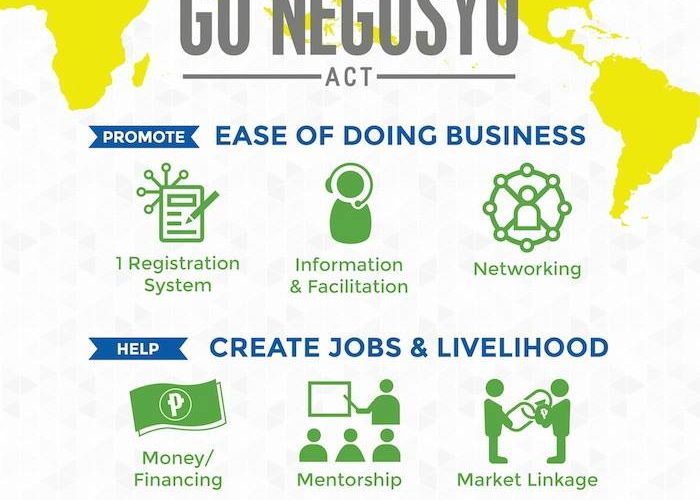BIDA KA!: Go na go sa pag-asenso!
Mga Bida, kamakailan ay naimbitahan ako sa Kapihan sa Diamond na pinangunahan ng beteranong mamamahayag na si Neal Cruz.
Sa nasabing pagtitipon, malayang nakapagtanong ang mga kaibigan nating miyembro ng media ukol sa aking pananaw sa mga mahahalagang isyu ng ating bansa.
Mula sa isyu ng overseas Filipino workers, pagbabago sa Saligang Batas at pagbubukas sa shipping industry sa mga dayuhan, nailahad ko naman ang aking posisyon at mga polisiya ukol sa mga ito.
Siyempre, kabilang sa mga napag-usapan namin ang pinakamainit na usapin sa kasalukuyan na laman ng balitaktakan sa iba’t ibang bahagi ng bansa — ang pork barrel scam.
Isa mga natanong sa akin ay kung apektado ang trabaho ng Senado sa pagkawala ng pork barrel.
Ito ang sabi ko: “Ang trabaho ng senador o kongresista ay gumawa ng polisiya at batas para sa kapakanan ng sambayanang Pilipino.
“Without the PDAF, it really forces you to focus on legislative work. Iyan na ang nagiging focus namin but then again, just because wala ka nang PDAF, it doesn’t mean you cannot engage in programs.”
May nagtanong sa akin noon, senator paano po ba ibabalik ang tiwala sa Senado ngayong bagsak na bagsak ang tiwala sa inyo?
Ang sabi ko naman, “No amount of words will get the people’s trust back. It’s really your output and your work.”
“Kapag nakikita na nagtatrabaho ka para sa kapakanan ng tao, maybe at some point babalik ang tiwala nila sa iyo. We just commit to work hard and make sure na ang mga naipangako natin noong kampanya ay gagawin natin.”
***
Sa nasabi ring forum, nabigyan ako ng pagkakataon upang matalakay ang Go Negosyo Act, isa sa pangunahing panukala na aking isinumite sa unang taon ko bilang mambabatas.
Sa tulong ng Diyos at sa suporta ninyo, mga Bida, nais kong ibalita na pirma na lang ni Pangulong Noynoy Aquino ang kulang at ganap nang magiging batas ang Go Negosyo Act.
Bago nagsara ang sesyon ng Kongreso kamakailan ay niratipikahan na ang inilabas na bicameral committee report. Pagkatapos nito’y ipadadala na sa Malacañang para mapirmahan ng Pangulo.
Ang ganap na pagsasabatas sa Go Negosyo Act ay isang malaking tagumpay para sa maliliit na negosyante sa bansa, o ang mga micro, small and medium enterprises (MSMEs).
Lalong mahalaga para sa MSMEs ang Go Negosyo Act dahil sila ang bumubuo ng 99 porsiyento ng mga negosyo at siyang nagbibigay ng 66 porsiyento na trabaho sa bansa.
Sa tulong din nito, mabibigyan ang mga Pilipino — mula sa simpleng maybahay hanggang sa ordinaryong empleyado — ng tsansa para magtatag ng sariling negosyo para matustusan ang inyong pangangailangan.
***
Isa sa mga inaasahang makikinabang sa pagsasabatas nito ay ang Kabalikat sa Kaunlaran sa Baseco Inc., isang people’s organization na tumutulong sa mga residente ng Baseco sa Tondo na magkaroon ng dagdag na kita mula sa paggawa ng bag na yari sa balot ng junk food at juice.
Dati, ang mga residente ng Baseco ay nabubuhay lang sa pagbabalat ng bawang kung saan kumikita sila ng P75 kada araw.
Sa tulong ng KKBI, ang mga residente na naging kasapi nito ay kumikita ng P800 hanggang P1,500 kada linggo depende sa demand sa kanilang produkto na ibinebenta sa mga mall at mga puwesto sa World Trade Center.
Subalit, pansamantala munang tumigil ang kanilang produksyon dahil sa kawalan ng dagdag na merkado kung saan maaari nilang ibenta ang kanilang produkto.
Maliban pa rito, apektado rin ang KKBI sa kawalan ng ideya para sa bagong produkto, na hinihiling ng mga supplier sa kanila.
Sa tulong ng Go Negosyo Act, mabibigyan sila ng pagkakataon para mapalawak ang kanilang merkado at training na maaari nilang magamit sa paggawa ng bagong produkto.
At kung kailangan nila ng puhunan, magkakaroon sila ng access sa kapital sa mga itatayong Negosyo Center.
Maliban sa mga serbisyong ito, pabibilisin ng Negosyo Center ang pagpaparehistro at pagsisimula ng negosyo ng mga gustong magkaroon ng alternatibong kabuhayan.
Sa Go Negosyo Act, Go na Go na ang pagdami ng trabaho at pag-asenso ng mga negosyo!
First Published on Abante Online

Recent Comments